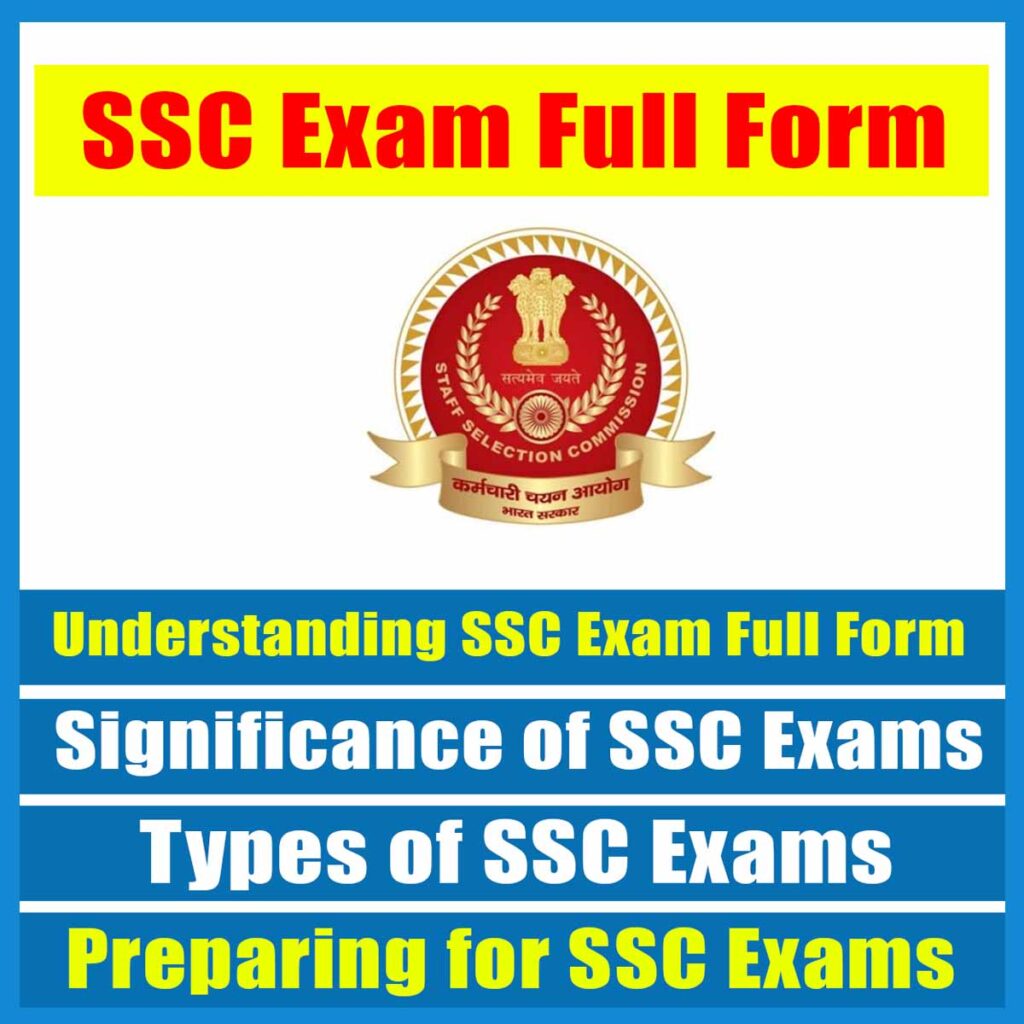
ssc Exam Full Form : In the realm of academic assessments in India, the SSC exam holds a significant place. Many students and even parents often come across the term “SSC exam” but may not be fully aware of its full form and the intricacies it involves. This blog post aims to unravel the mystery behind the SSC exam, shedding light on its full form, significance, and how to navigate through its complexities.
Understanding SSC Exam Full Form
The SSC exam, in its entirety, stands for the “Staff Selection Commission” examination. Established in 1975, the Staff Selection Commission is a government organization responsible for recruiting staff for various positions in ministries and departments of the Indian government. The SSC conducts a range of examinations to fill vacancies in roles like Sub-Inspectors in Central Police Organizations, Assistants in various ministries, and more.
Significance of SSC Exams
The significance of SSC exams lies in their role as a gateway to secure government jobs in India. Government jobs are highly sought after due to their job security, attractive perks, and a sense of social responsibility. The SSC exams serve as a crucial bridge connecting qualified individuals with rewarding careers in the public sector.
Types of SSC Exams
The Staff Selection Commission conducts a variety of exams catering to different educational qualifications and job requirements. Some of the prominent SSC exams include:
1. SSC Combined Graduate Level (CGL): This exam is for graduates and recruits for various Group B and Group C posts in government offices.
2. SSC Combined Higher Secondary Level (CHSL): Aimed at 10+2 pass candidates, this exam is for positions like Lower Division Clerk (LDC), Data Entry Operator (DEO), and Postal/Sorting Assistants.
3. SSC Junior Engineer (JE): Conducted for engineering graduates, this exam recruits individuals for the post of Junior Engineer in various government departments.
4. SSC Multitasking Staff (MTS): Designed for individuals who have passed Matriculation, this exam recruits candidates for various non-technical, general central service group ‘C’ non-gazetted posts.
5. SSC Constable (GD): This exam is for the recruitment of constables in the Central Armed Police Forces (CAPFs), NIA, SSF, and Rifleman (GD) in Assam Rifles.
Preparing for SSC Exams
The road to success in SSC exams involves strategic planning and diligent preparation. Here are some tips to help aspirants navigate through the preparation phase:
* Understand the Exam Pattern: Each SSC exam has a specific pattern. Understanding the structure of the exam, including the number of sections, marking scheme, and time duration, is crucial.
* Create a Study Plan: Develop a comprehensive study plan covering all the subjects and topics included in the syllabus. Allocate specific time slots for each subject, and make room for regular revisions.
* Practice Previous Years’ Papers: Solving previous years’ question papers is an excellent way to understand the exam pattern, identify important topics, and improve time management skills.
* Stay Informed: Keep yourself updated on current affairs, general knowledge, and the latest trends. Many SSC exams include sections testing the candidate’s awareness of current events.
* Take Mock Tests: Regularly take mock tests to assess your preparation level, identify weak areas, and work on improving them.
